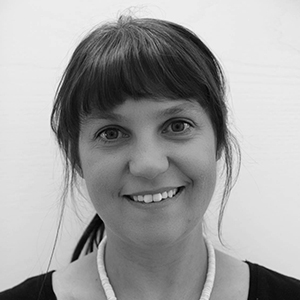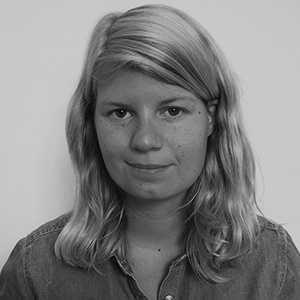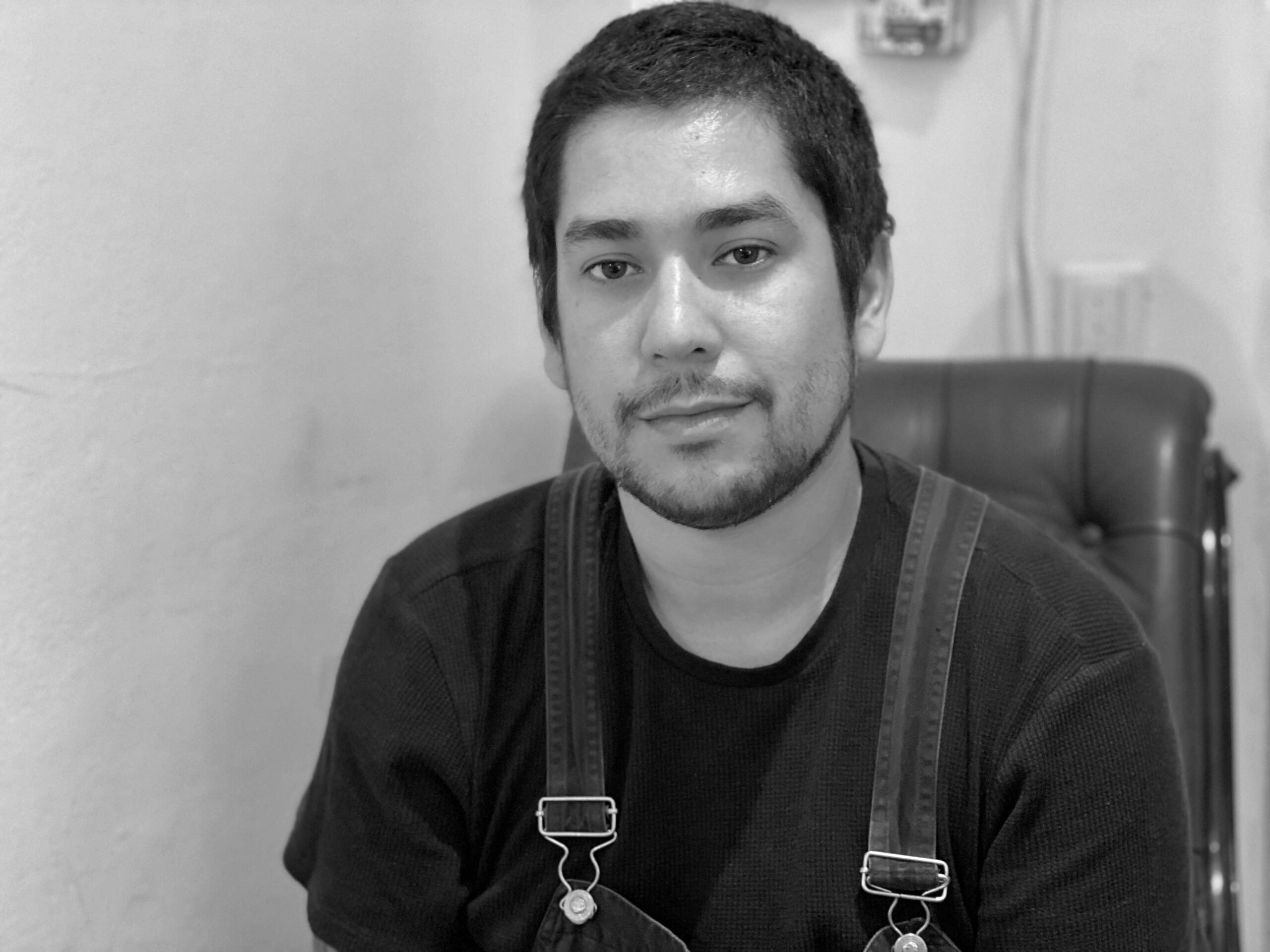

países con una prohibición casi total de la interrupción del embarazo
países con leyes de interrupción del embarazo relativamente permisivas y países de origen para viajes al extranjero para interrumpir el embarazo
países con leyes de interrupción del embarazo más permisivas y países de destino para viajes al extranjero para interrumpir el embarazo
Los países en gris no están incluidos en este proyecto de investigación.
No hay datos específicos disponibles sobre el país para la sección de Viajes.
Haga clic en los países en gris o seleccione de nuevo el país para volver a la sección principal Leyes/Barreras.
Haga clic en los países en gris o seleccione de nuevo el país para volver a la sección principal Servicios.
Seleccione una pestaña para saber más sobre el acceso a la interrupción del embarazo

En Europa, muchas mujeres viajan para buscar asistencia a la interrupción del embarazo fuera o dentro de las fronteras de su país de residencia, incluso en países con leyes de interrupción del embarazo relativamente permisivas, que son en los que se centra este estudio. Este estudio trata de ampliar el conocimiento sobre los motivos por los cuales las mujeres residentes en países de Europa Occidental con leyes relativamente permisivas viajan para interrumpir su embarazo y cuáles son sus vivencias en cuanto a los viajes y a las barreras para el acceso seguro/legal a la interrupción voluntaria del embarazo. Al mismo tiempo, sin embargo, hay mujeres que viven en países de Europa del Centro-Leste, como Eslovaquia y Hungría, y países con leyes en materia de interrupción del embarazo sumamente restrictivas, como Malta, Polonia e Irlanda, que también viajan para interrumpir su embarazo. Consulte la sección de Estudios y hallazgos.
Seleccione “Nuestro Proyecto” e “Investigación” (en móviles diríjase primero a “Menú”) para saber más sobre este proyecto. Coloque el cursor sobre uno de los países resaltados en el mapa aquí debajo para ver porqué forma parte de proyecto (cierre esta ventana para acceder al mapa).
Seleccione “Leyes/barreras” o “Servicios” y seleccione un país para saber más acerca de las leyes o barreras a la interrupción del embarazo y los servicios en ese país.
Leyenda de los colores del mapa (cierre esta ventana para ver el mapa):
países con una prohibición casi total de la interrupción del embarazo
países con leyes de interrupción del embarazo relativamente permisivas y países de origen para viajes al extranjero para interrumpir el embarazo
países con leyes de interrupción del embarazo más permisivas y países de destino para viajes al extranjero para interrumpir el embarazo
Viajes
Se sabe que muchas mujeres viajan al extranjero o dentro de las fronteras de su país de residencia para buscar una interrupción del embarazo, incluso en países con leyes de interrupción del embarazo relativamente permisivas, que son en los que se centra este estudio. Como este fenómeno sigue estando poco conocido, en este proyecto de investigación se hace un esfuerzo consciente para desentrañar las complejas razones detrás de las decisiones de viajar para interrumpir el embarazo, mediante el análisis de las vivencias de las mujeres cuando se desplazan en busca de asistencia para dicho procedimiento. Los datos recogidos anualmente por el Departamento de Salud de Inglaterra y Gales (2017) indican que se practicaron 4 810 interrupciones voluntarias de embarazo a mujeres no residentes en el Reino Unido en 2016. A través de nuestro estudio piloto de 2014-2015 supimos que hubo mujeres de 14 países que acudieron al Reino Unido para obtener asistencia a la interrupción del embarazo, siendo las mujeres italianas y francesas las que representan los grupos más numerosos (Gerdts et al 2016). Los datos de los Países Bajos (Rutgers, 2016) igualmente muestran que casi 3 000 mujeres viajaron allí para interrumpir su embarazo en 2014, principalmente procedentes de Francia, Alemania y Bélgica. Se necesitan más datos cuantitativos y cualitativos para comprender plenamente las vivencias de las mujeres que viajan para interrumpir su embarazo dentro de Europa.
En Europa, la interrupción del embarazo es legal en la mayoría de los países, pero hay muchas razones por las cuales las mujeres deciden buscar asistencia a la interrupción del embarazo fuera de su zona de residencia. Existen restricciones legales para la interrupción voluntaria del embarazo (IPPF 2012) y estas varían mucho en términos de límites de edad gestacional, períodos de espera, así como las razones por las que la ley permite el procedimiento. Además, existen otros obstáculos para obtener una interrupción del embarazo legal y segura que pueden crear barreras, como estigma cultural y religioso, y las presiones sociales que influyen en el acceso a la interrupción del embarazo (Pinter 2002). En algunos países o regiones la formación clínica es escasa o insuficiente (Lohr 2008), y la objeción de conciencia entre los profesionales médicos agrava la escasez de proveedores, especialmente para la interrupción del embarazo durante el segundo trimestre (Cook y Dickens, 2006).
Por lo tanto, puede que una mujer viaje a otro país o a otras regiones de su país por diversas razones, entre otras porque:
- Han superado los límites de gestación permitidos en su país
- Prefieren evitar el período de espera obligatorio
- Quieren interrumpir su embarazo por un motivo que no es legal en su país
- Les preocupa ser estigmatizadas en sus comunidades o por autoridades religiosas si se supiese que han interrumpido su embarazo
- Desean mantener el asunto en privado por una serie de razones personales
- Un proveedor local se haya negado a realizar una interrupción del embarazo alegando objeción de conciencia para el procedimiento
- No pueden encontrar un proveedor competente debido a la insuficiente formación del personal médico
Puede haber otras razones por las que las mujeres que viven en países con leyes de interrupción del embarazo relativamente permisivas deciden viajar lejos de su zona de residencia para obtener asistencia a la interrupción del embarazo y nuestra investigación busca conocer estas razones. Sobre la base de los datos obtenidos hasta el momento, este mapa muestra los patrones comunes de viaje para los países relevantes para esta investigación. El sentido de las flechas indica dónde viajan las mujeres para recibir tratamiento. Por ejemplo, las mujeres italianas viajan a España y Reino Unido, mientras que las mujeres francesas tienden a desplazarse a los Países Bajos, España y el Reino Unido.
Fuentes:
Hehenkamp, L. & Wijsen, C. (2016) Landelijke abortusregistratie 2014, Rutgers.
UK, Department of Health (2017) Report on abortion statistics in England and Wales for 2016.
Seleccione una barrera
Límites de edad gestacional
Periodo espera obligatorio
Asesoramiento obligatorio
Objeción de conciencia
Seleccione “Nuestro Proyecto” e “Investigación” (en móviles diríjase primero a “Menú”) para saber más sobre este proyecto. Coloque el cursor sobre uno de los países resaltados en el mapa aquí debajo para ver porqué forma parte de proyecto (cierre esta ventana para acceder al mapa).
Seleccione “Leyes/barreras” o “Servicios” y seleccione un país para saber más acerca de las leyes o barreras a la interrupción del embarazo y los servicios en ese país.
Leyenda de los colores del mapa (cierre esta ventana para ver el mapa):
países con una prohibición casi total de la interrupción del embarazo
países con leyes de interrupción del embarazo relativamente permisivas y países de origen para viajes al extranjero para interrumpir el embarazo
países con leyes de interrupción del embarazo más permisivas y países de destino para viajes al extranjero para interrumpir el embarazo


Qué hacemos

En muchos países europeos con legislación en materia de interrupción del embarazo relativamente permisiva, las mujeres se enfrentan a restricciones legales para la interrupción voluntaria del embarazo pasado el primer trimestre del embarazo, así como a otras barreras de procedimiento y sociales que limitan o dificultan su acceso a la interrupción del embarazo. En particular períodos de espera o asesoramiento obligatorios y escasez de profesionales dispuestos y capaces de proveer servicios de interrupción del embarazo, debido a la escasa formación y a la objeción de conciencia del personal médico. Este proyecto de investigación de cinco años se concibe como una investigación pionera multi-disciplinar y de métodos mixtos con el objetivo de comprender las experiencias de las mujeres que viven en países donde dichas barreras limitan o dificultan el acceso a la interrupción del embarazo legal.
En concreto, aspiramos a entender mejor cómo las diversas barreras tienen un impacto tanto en la experiencia de las mujeres que buscan asistencia a la interrupción del embarazo como en el propio procedimiento y cómo dichas barreras contribuyen a retrasar la edad gestacional en el momento de la interrupción, aumentando el riesgo de complicaciones para las mujeres. Asimismo, nos proponemos examinar si la estigmatización de la interrupción del embarazo en las comunidades en las que viven las mujeres, incluido en los servicios de salud sexual y reproductiva, afecta a sus experiencias con la búsqueda de asistencia a la interrupción del embarazo y a sus decisiones relativas a la interrupción del embarazo, centrándonos especialmente en la decisión de viajar lejos de su área de residencia. Vamos a examinar las experiencias de:
- Mujeres que viajan al Reino Unido, Países Bajos y España desde otros países europeos (poniendo el foco especialmente en Francia, Alemania, Bélgica e Italia) para interrumpir su embarazo.
- Mujeres que viajan dentro de las fronteras de sus propios países de residencia en Italia, Francia y España.
La investigación proporcionará evidencias empíricas en un ámbito en el que existen pocos datos, permitiendo comprender mejor la experiencia de las mujeres con las barreras legales, sociales y procedimentales en su país y sus experiencias con el viaje para interrumpir su embarazo.
Puede encontrar referencias en la sección Estudios y hallazgos.
Objetivos
1
Examinar el impacto de las barreras legales, procedimentales y sociales que limitan o dificultan el acceso a la interrupción del embarazo (límites de edad gestacional, períodos de espera o asesoramiento obligatorios y objeción de conciencia) sobre las opciones de las mujeres en relación con la interrupción (buscar una interrupción del embarazo legal/ilegal en su propio país o en el extranjero), así como sobre sus experiencias con la interrupción del embarazo.
2
Evaluar si, y cómo, estas barreras retrasan la decisión de las mujeres de buscar una interrupción del embarazo, lo cual aumenta los riesgos para su salud reproductiva.
3
Investigar si el estigma sobre la interrupción del embarazo en las comunidades de las mujeres, incluidos los servicios de salud sexual y reproductiva, afecta a las experiencias de las mujeres relativas a la interrupción de su embarazo y a su decisión para viajar en busca de asistencia a dicha interrupción.
4
Analizar y comparar cómo las mujeres de diferentes nacionalidades, edades y procedencias sociales o culturales se confrontan con las leyes en materia de interrupción del embarazo y las desafían, y sus experiencias con las barreras para una interrupción legal en sus países de residencia, además de cómo se ven a sí mismas, cómo perciben las leyes sobre la interrupción del embarazo en sus propios países y el proceso de realización de una interrupción.
5
Comparar las experiencias de las barreras para la interrupción del embarazo legal y para viajar a otro país para interrumpir el embarazo de las mujeres procedentes de países con leyes de interrupción del embarazo relativamente permisivas y de países con leyes sumamente restrictivas (Irlanda).
Por qué este proyecto

No hay constancia de estudios con métodos cualitativos o mixtos en los que se hayan investigado las razones por las cuales las mujeres procedentes de países con leyes de interrupción del embarazo relativamente permisivas, como Italia o Francia, viajan lejos de su zona de residencia, incluso al extranjero, para buscar asistencia a la interrupción del embarazo, y cuáles son las experiencias de las mujeres que se topan con barreras para acceder a dicha asistencia y con los viajes para interrumpir su embarazo. La mayoría de los estudios existentes que se centran en viajes fuera del país para interrumpir el embarazo examinan las experiencias de las mujeres que viajan al extranjero desde países donde el acceso a la interrupción del embarazo es muy restrictivo. Otros estudios examinan la experiencia de estas mujeres con la búsqueda de interrupciones de embarazo ilegales en su propio país o (para obtener referencias sobre estos temas, consulte la sección Estudios y hallazgos).
En la actualidad, sólo unos pocos países europeos – Irlanda, Polonia y Malta – tienen leyes muy restrictivas en materia de interrupción del embarazo. En la mayoría de los países europeos, la legislación permite la interrupción del embarazo bajo criterios amplios en el primer trimestre, cuando se realizan la inmensa mayoría de las interrupciones. En general, las interrupciones realizadas después del primer trimestre se permiten únicamente cuando existe un riesgo para la vida de la madre o graves problemas de salud del feto o de la mujer.
El impacto de las barreras legales, procedimentales y sociales en términos de accesibilidad a interrupciones de embarazo legales en los países con leyes de interrupción del embarazo relativamente permisivas aún no ha sido estudiado por los científicos sociales en Europa. El Consejo de Europa y la OMS han señalado que la objeción de conciencia puede ser (y no debería) una barrera para el acceso a la interrupción del embarazo segura y legal, particularmente para las mujeres que viven en zonas rurales o que tienen bajos ingresos, mientras que los retrasos en el acceso a una interrupción del embarazo segura aumenta aún más los riesgos para la salud de la mujer. Sin embargo, no hay datos sobre los tipos específicos de barreras a las que se enfrentan las mujeres en diferentes países y contextos sociales, y cómo los diferentes grupos de mujeres (por nacionalidad, origen social, edad, etc.) viven y eventualmente desafían estas barreras.
Impacto del proyecto

Los resultados de este estudio proporcionarán nuevos datos actualizados sobre el impacto de las barreras para el acceso a la interrupción del embarazo legal en países con leyes de interrupción del embarazo relativamente permisivas, haciendo hincapié en los viajes para interrumpir el embarazo dentro del país y a otros países. Los hallazgos de este estudio se presentarán y discutirán con especialistas, profesionales de la salud y responsables políticos y pueden ser utilizados para mejorar el acceso a la interrupción del embarazo segura y legal en toda Europa. Se publicarán tanto en este sitio web como en revistas especializadas de antropología y salud pública, y se difundirán también entre los profesionales de servicios de salud sexual y reproductiva, responsables políticos y ONG.
Se organizarán tres talleres en los dos últimos años del proyecto para contribuir al debate internacional sobre el derecho y el acceso a la interrupción del embarazo en Europa, y también se creará al final del proyecto un prototipo de aplicación web destinada a proporcionar a las mujeres acceso fácil a información sobre los servicios de interrupción del embarazo en su propio país.
Los primeros resultados relativos a las barreras para acceder a la interrupción del embarazo de forma legal y los viajes al extranjero para interrumpir el embarazo estarán disponibles en el invierno de 2018-2019. Los primeros resultados relativos a las barreras para acceder a la interrupción del embarazo de forma legal y los viajes para interrumpir el embarazo dentro del mismo país estarán disponibles en primavera de 2020.
Quiénes somos

Silvia de Zordo
Investigadora Principal
. . .

Joanna Mishtal
Co-Investigadora e Investigadora Sénior
. . .

Dr. Caitlin Gerdts
Co-Investigadora e Investigadora Sénior
. . .

Natalia Alonso Rey
Administradora de proyecto
. . .

Giulia Zanini
Becaria de post-doctorado
. . .

Giulia Colavolpe Severi
Ayudante de investigación en España
. . .

Ann-Kathrin Ziegler
Ayudante de investigación en los Países Bajos
. . .

Lieta Vivaldi
Asistente de investigación en Reino Unido
. . .

Irene Capelli
. . .

Laura Rahm
. . .

Anastasia Martino
. . .

David Palma
analista cuantitativo
. . .
Cómo

Se trata de un estudio que utiliza métodos mixtos, recopilando datos tanto cualitativos como cuantitativos con las mujeres que buscan interrumpir su embarazo en su propio país o en el extranjero. Los datos cuantitativos se basan en la realización de una encuesta y los datos cualitativos se obtienen a través de entrevistas en profundidad (EP). Los datos recopilados a través de ambos métodos se utilizan para:
1
Describir las características de las mujeres que buscan interrumpir su embarazo, especialmente en relación con sus experiencias en cuanto a las barreras que limitan o dificultan el acceso a servicios de interrupción del embarazo legales en cada país.
2
Entender si hay grupos determinados de mujeres (por nacionalidad, edad, antecedentes sociales, antecedentes reproductivos, edad gestacional, etc.) que se enfrentan a barreras específicas para interrumpir su embarazo.
3
Examinar qué barreras obligan a una mujer a viajar dentro de las fronteras de su propio país o al extranjero.
4
Examinar qué barreras retrasan más a las mujeres en su búsqueda de asistencia a la interrupción del embarazo, poniendo así en peligro su salud reproductiva.
Las muestras de las participantes de la investigación en distintos lugares se reparten como sigue:
| VIAJES AL EXTRANJERO | REINO UNIDO | 200 encuestas | 50 EP |
|---|---|---|---|
| Países Bajos | 200 encuestas | 50 EP | |
| España | 200 encuestas | 50 EP |
| VIAJES DENTRO DEL PAÍS | Italia | 150 encuestas | 50 EP |
|---|---|---|---|
| Francia | 150 encuestas | 50 EP | |
| España | 150 encuestas | 50 EP |
Dónde

BARCELONA - Institución de acogida
Este proyecto de investigación está coordinado por la Universidad de Barcelona, Departamento de Antropología. La Universidad de Barcelona es una de las principales universidades de España y ofrece un entorno de investigación enriquecedor y estimulante para llevar a cabo este proyecto. La investigación será coordinada por el Departamento de Antropología, que promueve la investigación internacional en los principales ámbitos antropológicos relevantes para el proyecto, tales como la antropología de la reproducción, el parentesco y los estudios de género (véase, en particular, el Grupo de investigación de género, identidad y diversidad – GENI). El personal del proyecto basado en la Universidad de Barcelona incluye a: Silvia De Zordo, Doctora, (IP), Natalia Alonso Rey, Doctora (Administradora del proyecto), Giulia Zanini, Doctora (Becaria de post-doctorado), Giulia Colavolpe Severi, estudiante de doctorado (Asistente de Investigación) y Ann-Kathrin Ziegler, Máster (Asistente de Investigación).
BRUSELAS: Entidad financiadora (ERC)
El Consejo Europeo de Investigación financia, apoya y premia investigaciones científicas de carácter “bottom-up” (ascendente) e innovadoras en Europa.
El Consejo Europeo de Investigación financia e incentiva la investigación de alta calidad en Europa en todos los ámbitos. Promueve investigaciones científicas “bottom-up” (ascendentes) y novedosas, permitiendo a la comunidad científica desarrollar ideas innovadoras.
Las becas del ERC financian proyectos liderados por científicos experimentados y emergentes que trabajan en Europa, basadas en los criterios de excelencia científica. Complementa también a organismos de financiación a escala nacional y es uno de los principales financiadores del programa Horizon 2020.
La misión del ERC no consiste solamente en financiar oportunidades de investigación, sino en la conformación del sistema de investigación europeo.
LONDRES, zona de estudio
Giulia Zanini trabaja en Londres y se ocupa de la investigación con métodos mixtos sobre viajes al extranjero para interrumpir el embarazo en Inglaterra (Reino Unido) durante un período de 12 meses en los años 1 y 2 del proyecto.
MADRID & BILBAO, zonas de estudio
Giulia Colavolpe Severi trabaja en Madrid y Bilbao y se ocupa de la investigación con métodos mixtos sobre viajes en el mismo país para interrumpir el embarazo en España durante un período de 12 meses en los años 1 y 2 del proyecto.
AMSTERDAM, zona de estudio
Ann-Kathrin Ziegler trabaja en Amsterdam y se ocupa de la realización de la investigación con métodos mixtos sobre viajes al extranjero para interrumpir el embarazo en los Países Bajos durante un período de 12 meses en los años 1 y 2 del proyecto.
Silvia de Zordo
Investigadora Principal
Investigadora principal: Silvia de Zordo, doctora, antropóloga social, Investigadora Sénior (ERC, Consejo Europeo de Investigación – European Research Council en inglés, y Ramón y Cajal) en la Universidad de Barcelona, ha sido precursora de la investigación sobre la interrupción del embarazo y la objeción de conciencia en Europa, especialmente en países con leyes de interrupción voluntaria del embarazo relativamente permisivas – Reino Unido, España e Italia. Se doctoró en Antropología Social en 2008 en la École des Hautes Études en Sciences Sociales (Escuela de Altos Estudios en Ciencias Sociales) en 2008 con una Tesis sobre las políticas de planificación familiar y la esterilización femenina en Brasil y continuó trabajando sobre temas relacionados con la salud reproductiva de las mujeres en América Latina y en Europa gracias a becas postdoctorales prestigiosas, como la Charlotte Ellertson en la Universidad de Columbia y la Marie Curie Fellowship en Goldsmiths-Universidad de Londres. Sus áreas de investigación incluyen la anticoncepción, la interrupción del embarazo y la objeción de conciencia en América Latina y Europa. Además de contar con formación en antropología social y médica, la Dra. De Zordo también tiene considerable experiencia en salud pública, como se refleja en sus publicaciones sobre la interrupción del embarazo en revistas de antropología médica y salud pública de renombre internacional. Su publicación más reciente en el ámbito de la interrupción del embarazo es A Fragmented Landscape. Abortion Governance and Protest Logics in Europe, editado junto a Joanna Mishtal y Lorena Antón y publicado por Berghahn Books en diciembre de 2016 (http://www.berghahnbooks.com/title/DeZordoFragmented). La Dra. De Zordo trabaja en la Universidad de Barcelona y está plenamente comprometida con este proyecto de investigación. Sus responsabilidades principales son: supervisar a los miembros del equipo y hacer avanzar el programa de investigación para el cumplimiento de los objetivos; investigar, en España y en Italia, las barreras que limitan o dificultan el acceso a la interrupción del embarazo legal y los desplazamientos dentro de un mismo país o al extranjero para interrumpir el embarazo;, analizar los datos y difundir los hallazgos de la investigación durante la duración del proyecto.

Joanna Mishtal
Co-Investigadora e Investigadora Sénior
Joanna Mishtal, doctora, es profesora asociada de antropología en la Universidad Central de Florida y Co-investigadora para este proyecto del Consejo Europeo de Investigación (ERC). Se doctoró en antropología cultural en 2006 en la Universidad de Colorado en Boulder. Entre 2006 y 2008 fue Becaria Postdoctoral del programa Charlotte Ellertson en la Universidad de Columbia Departamento Heilbrunn de Población y Salud Familiar (Heilbrunn Department of Population and Family Health) de la Escuela Mailman de Salud Pública (Mailman School of Public Health), y llevó a cabo investigaciones en los ámbitos de la antropología médica y la salud pública. En 2017 ocupó el cargo de Investigadora Visitante en la Universidad de Kent, en la Escuela de Derecho de Kent, en Canterbury, Reino Unido. Sus investigaciones examinan derechos, salud y políticas reproductivas, en particular en la medida en que estén relacionados con la normativa en materia de interrupción del embarazo. Su trabajo se enmarca geográficamente en Europa, especialmente en Polonia, Irlanda, el Reino Unido, y en Bruselas a nivel de la Unión Europea. Sus intereses teóricos abarcan el género y gobernanza reproductiva; el feminismo y los movimientos de mujeres; la economía política y la democratización. Como Investigadora Sénior, una de las principales contribuciones de la Dra. Mishtal dentro de este proyecto del ERC es su experiencia en el diseño de investigaciones cualitativas y en el análisis de datos comparativos, así como en la difusión de los resultados durante los años uno, cuatro y cinco. Es autora de: The Politics of Morality: The Church, the State, and Reproductive Rights in Postsocialist Poland, Ohio University Press, 2015. También es co-editora del volumen A Fragmented Landscape. Abortion Governance and Protest Logics in Europe, editado junto a Silvia De Zordo y Lorena Antón, y publicado por Berghahn Books en diciembre de 2016.

Dr. Caitlin Gerdts
Co-Investigadora e Investigadora Sénior
La Dra. Caitlin Gerdts, doctora y con una maestría en ciencias de la salud, es la vicepresidenta de la organización sin ánimo de lucro Ibis Reproductive Health y Co-investigadora en este proyecto. La Dra. Gerdts es epidemióloga y sus ámbitos de investigación incluyen: estudios epidemiológicos y clínicos que miden y documentan las vivencias de las mujeres con la interrupción del embarazo dentro y fuera del ámbito clínico; la evaluación del impacto de las barreras legales a la interrupción del embarazo en la salud y la vida de las mujeres; y la evaluación de las intervenciones destinadas a mejorar el acceso a la interrupción del embarazo segura. La Dra. Gerdts cuenta con experiencia metodológica en el diseño y desarrollo de investigaciones, evaluaciones de impacto y métodos de inferencia causal; es autora y coautora de más de 20 publicaciones revisadas por especialistas. Se licenció en Biología Humana por la Universidad de Stanford, obtuvo un Máster en Ciencias de la Salud (MHS) sobre población, familia y salud reproductiva de la Escuela de Salud Pública (School of Public Health) Johns Hopkins Bloomberg, y un doctorado en epidemiología en la Universidad de California, Berkeley. La Dra. Gerdts colabora en este proyecto como investigadora experimentada a tiempo parcial y es principalmente responsable del diseño y el análisis de los elementos cuantitativos de este estudio, así como de la difusión de los resultados y los hallazgos en los años uno, dos, tres y cuatro.

Natalia Alonso Rey
Administradora de proyecto
Natalia Alonso Rey obtuvo la Licenciatura en Antropología Social y Cultural en la Universidad de la República (Uruguay) y un Máster en Migraciones y Mediación Social de la Universitat Rovira i Virgili (URV, Tarragona, España). Recientemente ha completado sus estudios de doctorado en Antropología (URV) en el ámbito de las migraciones, la cultura material, la identidad y la memoria. También forma parte un equipo de investigación en el ámbito de la Antropología Urbana y las migraciones en la URV, enfocándose sobre todo en las experiencias de los hombres que participan en la prestación de cuidados a largo plazo (tanto profesionalmente como en el entorno familiar), especialmente con personas mayores. Desde 2010 trabaja como investigadora y asistente administrativa en diversos proyectos en el Departamento de Antropología, Filosofía y Trabajo Social en la URV. Desde 2010 trabaja como investigadora y asistente administrativa en diversos proyectos en el Departamento de Antropología, Filosofía y Trabajo Social en la URV. Desde mayo 2017 trabaja como administradora del proyecto y sus responsabilidades principales son: la gestión del presupuesto y del sitio web, las traducciones y la organización del trabajo del equipo de investigación (reuniones, viajes, participación en Conferencias, etc.).

Giulia Zanini
Becaria de post-doctorado
Giulia Zanini, doctora, es socióloga y antropóloga médica especializada en el parentesco, y se doctoró en el Instituto Universitario Europeo (IUE). Fue becaria de post-doctorado Marie Curie-Piscopia en la Universidad de Padova (Italia) y participó en el proyecto (In)Fercit con sede en la Universidad del Egeo (Grecia). Sus ámbitos principales de investigación incluyen la familia y el parentesco, la medicina reproductiva, la religión, el género, las políticas de salud y familia y la ciudadanía. Su contribución al proyecto consiste en una investigación con métodos mixtos sobre los viajes al extranjero para interrumpir el embarazo, en particular en Inglaterra (Reino Unido), durante un período de 24 meses en el primer, segundo y tercer año del proyecto.

Giulia Colavolpe Severi
Ayudante de investigación en España
Giulia Colavolpe Severi (Máster) tiene un Máster en Antropología Social en la École des Hautes Études en Sciences Sociales (París). Actualmente cursa un programa de doctorado en la misma institución, y ha sido estudiante visitante de doctorado en Chile y España. Sus principales áreas de interés son la tecnología médica, los derechos reproductivos y la salud, la genética, el parentesco, y el trabajo de campo etnográfico. Su contribución al proyecto consiste en una investigación con métodos mixtos en España sobre los viajes dentro del país para interrumpir el embarazo en España durante un período de 18 meses en el primer y segundo año del proyecto.

Ann-Kathrin Ziegler
Ayudante de investigación en los Países Bajos
Ann-Kathrin Ziegler (Máster) obtuvo un Máster en Ciencias Sociales de la Universidad de Ámsterdam en 2016, para el que llevó a cabo una investigación etnográfica sobre sexualidad y religión en Yogyakarta, Indonesia. También se licenció en Antropología Social en la Universidad Goethe de Frankfurt, y completó el Programa Interdisciplinario de Estudios de Mujeres y Género en el Cornelia Goethe Centrum en Frankfurt en 2014. Sus principales ámbitos de investigación son los estudios de género y sexualidad y su vínculo con la religión, así como la salud reproductiva y el trabajo de campo etnográfico. Su contribución al proyecto consiste en una investigación con métodos mixtos sobre los viajes al extranjero para interrumpir el embarazo, en particular en los Países Bajos, durante un período de 18 meses en el primer y segundo año del proyecto.

Lieta Vivaldi
Asistente de investigación en Reino Unido
Lieta Vivaldi (PhD) obtuvo su Doctorado en Sociología en la Universidad Goldsmiths de Londres y tiene un Máster en Sociología de la London School of Economics, habiéndose licenciado anteriormente en Derecho en la Universidad de Chile. Ha participado en diferentes proyectos de investigación en materia de interrupción del embarazo, especialmente en Chile y América Latina. Sus investigaciones se centran en los derechos reproductivos, las tecnologías reproductivas, el feminismo y la teoría de género, la interseccionalidad y las políticas sanitarias. En el proyecto se encargó de la recopilación de datos sobre viajes al extranjero para interrumpir el embarazo en Inglaterra (Reino Unido).

Irene Capelli
Irene Capelli posee un doctorado en Antropología Social (Universidad de Turín). Se graduó en Antropología Médica (máster Universidad de Londres Brunel) y en Antropología Social y Cultural (máster de la Universidad de Bolonia). Está especializada en reproducción y salud en África del Norte y en Europa; reproducción, migración y prácticas de crianza; derechos reproductivos, sexuales y de interrupción del embarazo; salud y desigualdades. Ha realizado una exhaustiva investigación etnográfica en diferentes partes de Marruecos e Italia a través de los servicios de salud y las ONG, con los profesionales y las mujeres. También trabaja como antropóloga y consultora. Su contribución al proyecto consiste en una investigación de métodos mixtos sobre desplazamientos internos para interrumpir el embarazo en Italia durante 12 meses durante el tercer y cuarto año del proyecto.

Laura Rahm
Laura Rahm (PhD) es socióloga política y demógrafa especializada en políticas sobre interrupción del embarazo, doctorada por la Universidad París Descartes (UPD) y el Centro de Población y Desarrollo (CEPED) de París. Sus últimos trabajos se han publicado en Population and Development Review, Critique Internationale y en la revista Men and Masculinities. Su libro Gender-Biased Sex Selection in South Korea, India and Vietnam: Assessing the Influence of Public Policy (Selección prenatal del sexo en Corea del Sur, India y Vietnam: análisis de la influencia de las políticas públicas) fue publicado en Springer / Palgrave Macmillan en 2019. Laura también trabaja como consultora y formadora en Programa Global para Evitar la Selección Prenatal del Sexo, financiado por la UE y el UNFPA. Su contribución al proyecto consiste en una investigación de método mixto en Francia sobre las barreras para la interrupción del embarazo legal y los desplazamientos internos para interrumpir el embarazo durante un período de 24 meses del proyecto.

Anastasia Martino
Anastasia Martino (PhD) se doctoró en Antropología Cultural y Etnología de la Universidad de Milán – Bicocca. Realizó un minucioso trabajo de campo etnográfico en México sobre políticas de planificación familiar y las experiencias de las mujeres con el embarazo y la interrupción del embarazo (ilegal en el país), en hospitales y en espacios dirigidos por movimientos tanto en contra de la interrupción como movimientos a favor del derecho a decidir. Cuenta con un máster en Antropología Médica de la Universidad de Roma – La Sapienza. Su trabajo se centra en la salud pública y las políticas institucionales relacionadas con los derechos sanitarios, sexuales y reproductivos, los estudios feministas y de género y los estudios sobre movimientos sociales. Contribuye al proyecto con una investigación de métodos mixtos sobre desplazamientos internos para interrumpir el embarazo en Italia durante 12 meses durante el tercer año del proyecto.

David Palma
analista cuantitativo
David Palma es médico e investigador del Departamento de Epidemiología de la Agencia de Salud Pública de Barcelona, con especialización en servicios de pruebas de VIH/ITS, salud sexual y metodología de la investigación. Actualmente es Ph.D. Estudiante del Instituto de Atención e Investigación en Salud Pública (CAPRHI) de la Universidad de Maastricht y trabaja en el Consorcio de Investigación Biomédica en Red en Epidemiología y Salud Pública de España. Anteriormente realizó un Máster en Salud Pública en la Universitat Pompeu Fabra/Universitat Autónoma de Barcelona, un Máster en Sexualidad en la Universidad de Santiago de Chile y estudió Medicina en la Universidad Católica de Chile. David ha trabajado en programas de prevención del VIH y entidades comunitarias en Chile, así como en la defensa del derecho al aborto en Chile durante 2015-2017. Trabaja como analista cuantitativo del proyecto BAR2LEGAB desde noviembre de 2021.
